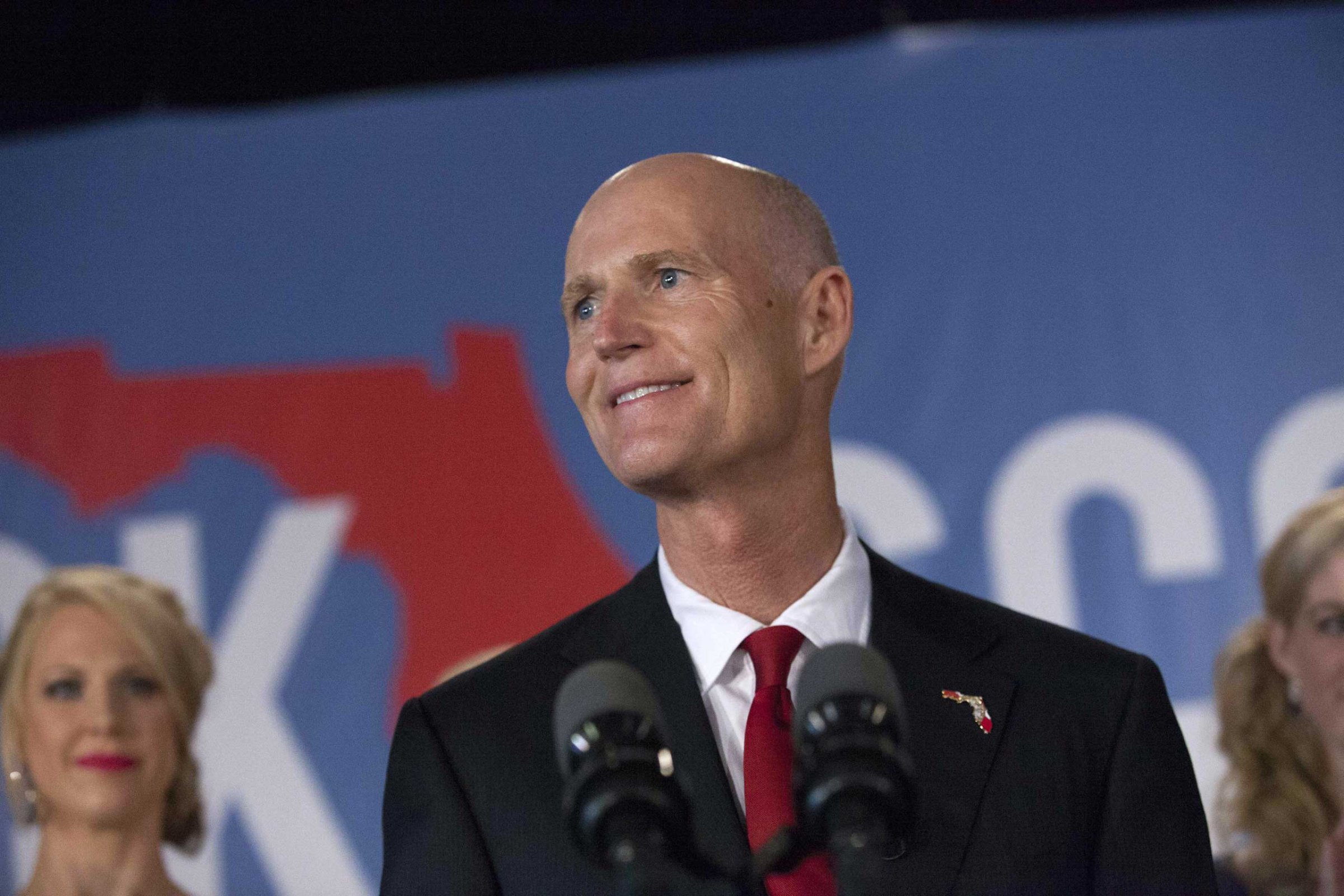
Correction: Appended, Nov. 5.
Despite shelling out more than $60 million this election cycle—substantially more than they have spent in the past—the national teachers unions watched with disappointment on Tuesday as their candidates in Georgia, North Carolina, Arkansas, Wisconsin, Florida, Michigan, Ohio and Illinois were roundly defeated. Many union-backed state and local initiatives on issues like pre-K education and better child-care salaries also went down in flames.
The battle over education at the federal level matters more these days, with major government-backed initiatives, like the Common Core standards, funding for new teacher evaluations, and student loan forgiveness programs, hanging in the balance.
While American Federation of Teachers president Randi Weingarten dismissed the trouncing as an unfortunate side effect of a larger Republican referendum on President Obama’s record, education reformers were quick to chalk up the results as a repudiation of the educational establishment.
“Union-backed candidates embracing a one-size-fits-all, status quo education system for our children were soundly rejected by voters,” said Kevin Chavous, executive counsel of the American Federation for Children, a conservative reform group that supports charter schools, vouchers, and other school choice programs. The AFC and its partner PACs spent $4.5 million this election cycle.
“This election marks the beginning of the end for the education establishment; no longer can unions expect to buy the outcome of elections,” he added. “Voters at every level have rejected an antiquated education establishment agenda and system.”
In a statement Wednesday, Weingarten refuted that interpretation, pointing to a handful of victories, including the passage of school levies across the country. In Pennsylvania, voters elected union-friendly Democrat Tom Wolf over incumbent Republican Gov. Tom Corbett, who had waged war against the unions and cut public school funding. In California, the unions also celebrated the reelection of state schools chief Tom Torlakson, who fought a vicious—and wildly expensive—battle against the reformer-backed Marshall Tuck.
Weingarten also insisted that in places like Florida, where Republican Gov. Rick Scott won over union-backed Charlie Crist, it was a tight election and Scott “ran on funding schools, not his record.”
In a video statement released Wednesday afternoon, National Education Association president Lily Eskelsen Garcia said that while many banner races were lost, voters’ support for state and local initiatives on minimum wage, school safety and women’s health should be taken as a good sign. “They chose to support kids and their families,” she said.
But in most races, including Florida, where the AFT and the NEA spent generously on TV ads and where both Weingarten and Eskelsen Garcia personally stumped for more than a dozen candidates, the union-backed choices were largely aced out. Democratic gubernatorial candidates Mary Burke in Wisconsin and Mark Schauer in Michigan, both of whom campaigned with Weingarten and Eskelsen Garcia, both lost Tuesday.
In Kansas, Republican Gov. Sam Brownback beat Democratic challenger Paul Davis, despite the NEA Advocacy Fund’s ad campaign attacking Brownback’s “failed experiment” in education. And in North Carolina, Republican Thom Tillis beat out Democratic incumbent Kay Hagan for her Senate seat, despite the NEA slamming Tillis for his record on education. In Arkansas, union-backed Democratic incumbent Mark Pryor lost to Republican challenger Tom Cotton.
In Arizona and Georgia, radical opponents of the Common Core State Standards came to power over union-friendly candidates who would see a more moderate implementation of the standards, and in Nevada, a ballot measure raising taxes on corporations to fund public schools failed to pass. In Seattle, an effort to expand pre-K education and raise wages for child care workers failed, and in Washington state, voters rejected an effort to reduce class sizes and increase the number of teachers hired.
But Eskelsen Garcia, while admitting to a “heavy heart” today, laced her statement with an implicit threat. “Candidates across the spectrum made statements claims and promises of what he or she is going to do for public education. We will soon know if they were telling the truth,” she said. “And for those that weren’t, we will be the watch dogs.”
Correction: The original version of this story misstated the amount teachers spent during the 2014 election cycle. It was more than $60 million.
More Must-Reads from TIME
- Cybersecurity Experts Are Sounding the Alarm on DOGE
- Meet the 2025 Women of the Year
- The Harsh Truth About Disability Inclusion
- Why Do More Young Adults Have Cancer?
- Colman Domingo Leads With Radical Love
- How to Get Better at Doing Things Alone
- Michelle Zauner Stares Down the Darkness
Write to Haley Sweetland Edwards at haley.edwards@time.com